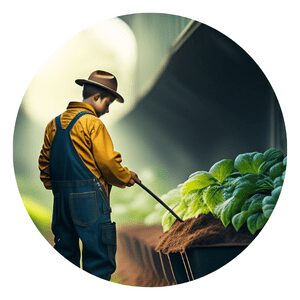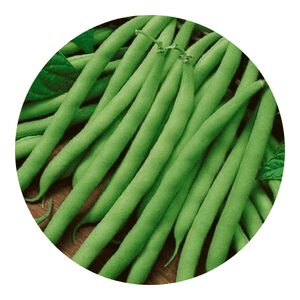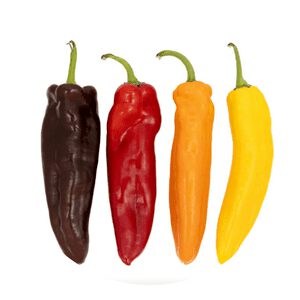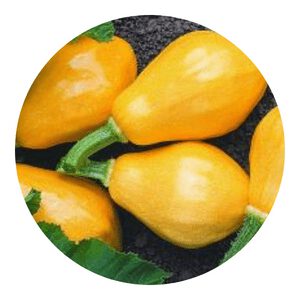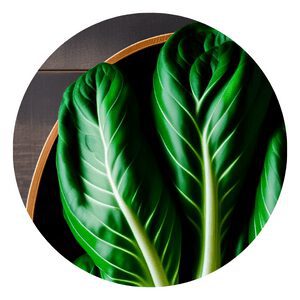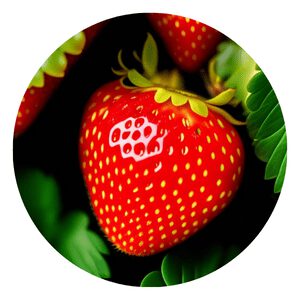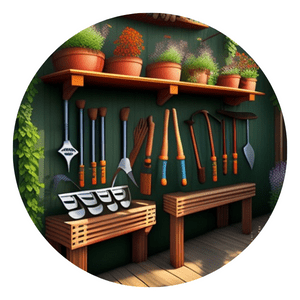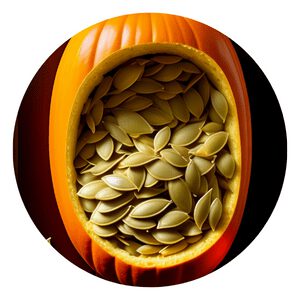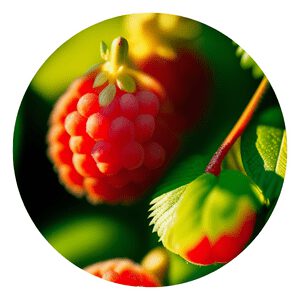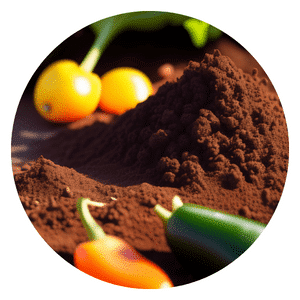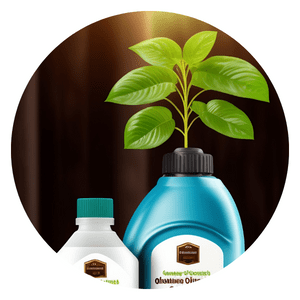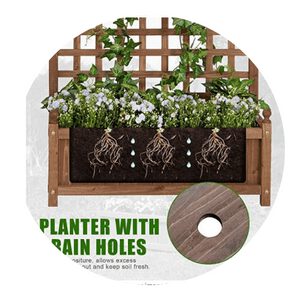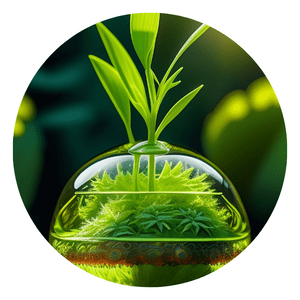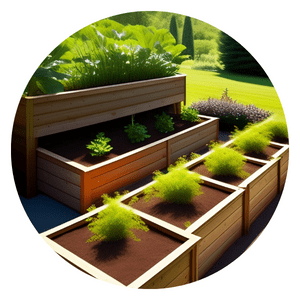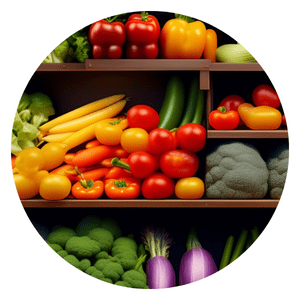Organic Gardening in Washington Backyard: Top Fruits and Vegetables to Grow
Organic gardening has become increasingly popular in recent years, and the benefits are clear: you get to enjoy farm-fresh produce right in your own backyard and have control over what goes into the food you eat.
If you live in Washington and want to try your hand at organic gardening, there are a variety of fruits and vegetables that thrive in this climate.
Growing these plants organically is easier than ever with the right combination of soil, sun, water, and nutrients.

Washington Menu
Top Vegetables to Grow in Washington Backyard
Growing vegetables in one’s backyard can be an enjoyable and rewarding experience.
It not only provides fresh produce for meals, but it also helps to reduce the cost of groceries.
Washington state has a favorable climate for growing vegetables, with a mix of mild summers and cool winters that allow many varieties of vegetables to thrive.
Tomatoes
Tomatoes are one of the most popular fruits to grow in a backyard garden, and for good reason.
Not only do they taste delicious, but they are also packed with nutrients like vitamin C and potassium.
When grown organically, tomatoes can be free from harmful pesticides and chemicals that can harm both the environment and our health.
Washington is an ideal location to grow tomatoes as it has a long growing season with plenty of sunlight.
There are many varieties of tomatoes to choose from, including cherry, beefsteak, heirloom, and roma.
Each type has its own unique flavor profile and texture, making them versatile for different dishes such as salads or sauces.
To ensure a successful tomato harvest, it is important to provide the right growing conditions such as well-draining soil with plenty of organic matter and regular watering.
Pruning can also help promote healthy growth while reducing disease risk.
With proper care and attention, Washington backyard gardeners can enjoy bountiful tomato crops all summer long.
Carrots
Carrots are a versatile vegetable that can be grown in most climates and soil types.
They are a great source of nutrition, containing high levels of beta-carotene, fiber, and vitamin K1.
Carrots come in various colors ranging from orange to purple to white, making them an attractive addition to any garden.
Growing carrots requires patience and attention to detail.
The seeds should be planted in loose soil with good drainage and plenty of sunlight.
It is important to keep the soil moist but not wet as too much water can cause the roots to rot.
Fertilizer should be applied sparingly as too much can cause the carrots to become misshapen or forked.
Harvesting carrots is easy once they have reached maturity which is typically around 60-80 days after planting.
Simply pull them out of the ground by gently lifting the foliage and grasping the top of the carrot root.
Carrots can be stored for several weeks if kept in a cool, dry place such as a refrigerator or root cellar.
Overall, growing carrots is an excellent way to add fresh produce to your diet while also enjoying the satisfaction of growing your own food at home.
Beans
Beans are one of the easiest and most rewarding vegetables to grow in a backyard garden.
They come in two varieties: bush and pole beans.
Bush beans tend to be smaller and more compact, while pole beans require trellises or other supports to grow vertically.
Either variety can be grown organically by using natural fertilizers like compost and avoiding the use of pesticides.
One of the benefits of growing beans is that they are nitrogen-fixing plants, which means they take nitrogen from the air and convert it into a form that can be used by other plants in the soil.
This makes them an excellent companion plant for other vegetables like tomatoes, peppers, and cucumbers.
Beans also have a high yield potential, so just a few plants can produce an abundance of fresh beans throughout the summer months.
When planting beans in your garden, it’s important to choose a sunny location with well-draining soil.
Beans thrive in warm weather but shouldn’t be planted until after all danger of frost has passed.
They should be watered regularly but not over-watered as this can cause root rot.
With proper care and maintenance, you’ll soon find yourself enjoying delicious home-grown organic beans straight from your backyard garden!
Peppers
Peppers are one of the most popular vegetables to grow in an organic garden.
They thrive in warm weather, making them perfect for growing in Washington’s hot summers.
There are many different types of peppers that can be grown including bell peppers, jalapeños, habaneros and banana peppers.
Each type has its own unique flavor and spice level which makes them perfect for adding variety to meals.
When it comes to growing peppers, it is important to choose a sunny spot with well-draining soil.
Peppers require regular watering but be careful not to overwater as this can lead to root rot.
To ensure a good harvest, it is also important to fertilize the plants regularly with organic fertilizer.
Once harvested, peppers can be used fresh or preserved by drying or pickling.
They can be added to salads, salsas and sauces or used as a topping on pizzas and sandwiches.
With their versatility and delicious flavor, it’s no wonder why peppers are a favorite among home gardeners in Washington State.
Zucchini and Squash
Zucchini and squash are two of the most popular vegetables to grow in a backyard garden.
Not only are they easy to care for, but they produce an abundance of fruit that can be used in a variety of dishes.
These vegetables thrive in warm weather and require plenty of water to grow properly.
One of the best things about growing zucchini and squash is their versatility in cooking.
They can be grilled, roasted, sautéed or even baked into breads and cakes!
They also provide a great source of fiber and essential vitamins like vitamin C and potassium, making them an excellent addition to any healthy diet.
To grow zucchini and squash successfully, it’s important to plant them in well-draining soil with plenty of organic matter for nutrients.
These plants are susceptible to pests like aphids and squash bugs so keeping them well-watered will help prevent these problems from occurring.
Overall, zucchini and squash make great additions to any backyard garden as they provide both beauty and nutrition all season long!
Leafy Greens: lettuce, kale, and spinach
When it comes to growing leafy greens in your Washington backyard, lettuce, kale, and spinach are some of the most popular options.
Not only are they easy to grow, but they are also packed with nutrients that can improve your health.
Lettuce is a great option for those who want a fast-growing plant that doesn’t require much maintenance.
With its crisp texture and refreshing taste, lettuce is perfect for salads or as a garnish for sandwiches and burgers.
Kale is another popular choice for growing in Washington backyards.
This nutrient-dense superfood has become increasingly popular in recent years due to its high levels of vitamins A, C, and K.
It’s also rich in antioxidants and fiber, making it an excellent addition to any healthy diet.
Finally, spinach is another versatile leafy green that grows well in Washington backyards.
It’s packed with iron and other essential minerals that can help promote healthy blood flow and overall wellness.
Whether you’re adding it to smoothies or using it as a base for salads or dips, spinach is a nutritious option that you won’t regret planting in your garden this season.
A humble beginning in the blossoming of Washington, Organic gardening with rare seeds that awaken, Tending and protecting each season changes bring, Watching the growing fruits of your labor sing. Manure and compost builds the nutrients organic soil needs, Drought and pest resistance from unique heirloom breeds, Record keeper for days and tasks standing tall, Spreading more joy with each harvest fall.
Chappy The Gardener
Top Fruits to Grow in Washington Backyard
Washington is known for its unpredictable weather, but that doesn’t mean you can’t enjoy fresh fruits from your own backyard.
Some of the best fruits to grow in Washington include apples, cherries, and blueberries.
Berries: strawberries, raspberries, and blueberries
Berries are some of the easiest fruits to grow in your backyard.
They don’t require too much space, and they can thrive with minimal care.
Strawberries, raspberries, and blueberries are some of the most popular berry varieties that you can grow in Washington.
Strawberries are a great option for gardeners looking for a low-maintenance crop that produces high yields.
These berries do well in slightly acidic soil and need plenty of sunshine to thrive. You’ll be able to harvest ripe strawberries every few days throughout the summer months.
Raspberries come in two main types: summer-fruiting varieties and fall-bearing varieties.
The former produce fruit once per year, while the latter will give you two crops – one in late summer and one in fall.
Raspberries need plenty of water, so make sure they’re getting enough during dry periods.
Blueberries are another delicious fruit that’s easy to grow at home.
They prefer acidic soil (with a pH between 4.5-5.5) and lots of sunshine.
If you’re growing blueberry bushes, it’s important to prune them regularly to promote healthy growth and fruit production.
In summary, if you’re looking for an easy way to enjoy fresh berries all season long while also reaping the benefits of organic gardening, consider planting strawberries, raspberries, or blueberries in your backyard!
Pears
Pears are a great addition to any organic garden, especially if you live in Washington.
They thrive well in the state’s moderate climate and can produce an abundant harvest with proper care.
Pear trees require full sun exposure and well-drained soil that is rich in nutrients. Planting them near other fruit trees such as apples or cherries can also help with cross-pollination and increase their productivity.
When it comes to pest control, pears are susceptible to several pests and diseases, including pear scab, fire blight, and codling moth.
However, using organic methods such as spraying with neem oil or planting companion plants like chives or garlic can help prevent these issues.
It’s also important to prune your pear tree regularly to promote healthy growth and improve air circulation.
Harvesting pears is best done when they are still firm but have started changing color from green to yellow or brownish-red depending on the variety.
Once harvested, let them ripen at room temperature before storing them in the refrigerator for longer shelf life.
With these tips in mind, adding a pear tree to your organic garden will not only provide delicious fruits but also add beauty to your backyard landscape.
Cherries
When it comes to growing fruits in Washington backyards, cherries are definitely one of the top choices.
With their sweet and tangy flavor, juicy texture, and vibrant red color, cherries make for a delicious snack or ingredient in various recipes.
Best of all, they are relatively easy to grow organically as long as you choose the right variety and provide them with proper care.
One of the most popular cherry varieties for home gardeners in Washington is the Bing cherry.
This classic dark-red cherry is known for its large size and rich flavor that is perfect for fresh eating or baking.
Another great choice is the Rainier cherry, which has a beautiful yellow-and-red coloration and a sweeter taste than Bing cherries.
To successfully grow organic cherries in your backyard, you’ll need to start by selecting healthy nursery trees that are certified disease-free.
Then, plant them in well-draining soil with plenty of sunshine exposure.
Be sure to water your trees regularly but avoid overwatering as this can lead to root rot.
Additionally, protect your trees from birds by covering them with nets during fruiting season.
Peaches
Peaches are a delicious and nutritious fruit that can be easily grown in your Washington backyard garden.
These sweet stone fruits are high in antioxidants, fiber, vitamin C, and potassium.
They are also versatile, making them great for eating fresh, baking in desserts, or preserving through canning.
When planting peach trees in Washington State, it is important to choose a variety that is tolerant of the cold temperatures and low chill hours of the region.
Some popular peach tree varieties for Washington include Frost Peach, Redhaven Peach, and Veteran Peach.
It is also recommended to plant multiple trees to ensure cross-pollination and increase fruit production.
To properly care for your peach trees in Washington State, they should be planted in well-draining soil with full sun exposure.
Pruning should be done during the dormant season to promote healthy growth and remove any diseased or damaged branches.
Additionally, regular watering during dry spells and fertilization can help maintain healthy trees with abundant fruit production.
Apples
Apples are a classic fruit to grow in a backyard garden.
Washington State, in particular, is known for producing some of the best apples in the world.
There are countless varieties to choose from, ranging in flavor and texture.
Some popular choices include Granny Smith, Honeycrisp, and Pink Lady.
When growing apple trees, it’s important to consider the climate and soil conditions of your specific area.
Apples thrive in cooler climates with well-draining soil.
They also require full sun exposure to produce an abundant crop.
It’s recommended to plant at least two different varieties of apple trees for optimal pollination.
Harvesting apples can be a fun and rewarding experience for any gardener.
Depending on the variety, apples can be harvested as early as July or as late as November.
Once harvested, they can be stored for weeks or even months if kept in cool conditions.
Whether eaten fresh off the tree or used for baking purposes, homegrown apples are a delicious addition to any meal or snack time.
The Importance of Organic Gardening
Organic gardening is a sustainable and eco-friendly way to cultivate your own fruits and vegetables.
By avoiding the use of synthetic pesticides, herbicides, and fertilizers, you can reduce your environmental impact while producing healthy and nutritious food for yourself and your family.
Organic gardening also promotes biodiversity by supporting beneficial insects, birds, and other wildlife in your backyard.
In Washington state, organic gardening is particularly important due to its wet climate that can easily spread chemical pollutants through groundwater or runoff.
Growing your own organic produce ensures that you know exactly what goes into it and can avoid harmful chemicals that may be present in conventionally grown produce found in grocery stores.
Plus, it’s always satisfying to eat something fresh from your own garden!
Some of the top fruits and vegetables to grow organically in a Washington backyard include blueberries, raspberries, strawberries, tomatoes, cucumbers, peppers, lettuce greens such as kale or spinach.
These crops are well-suited to the region’s climate but require careful attention to soil quality and water management.
By investing time into proper soil preparation with composting or adding natural minerals like rock dusts; maintaining consistent moisture levels through drip irrigation; using companion planting methods to discourage pests without resorting to chemicals – home gardeners can enjoy bountiful yields of delicious organic produce throughout the growing season!
The benefits of organic gardening over conventional gardening
One of the main advantages of organic gardening over conventional gardening is that it promotes healthier soil, which leads to more nutritious and flavorful produce.
Organic gardeners use natural fertilizers and supplements such as compost, manure, and bone meal instead of chemical-based ones, allowing for a more balanced ecosystem in the soil.
This approach also helps to reduce soil erosion and minimize water pollution.
Another benefit of organic gardening is that it avoids exposure to potentially harmful chemicals found in traditional pesticides and herbicides.
By using alternative methods like companion planting or introducing beneficial insects, organic gardeners can control pests without damaging other organisms or disrupting the environment.
Additionally, since organic gardens do not rely on synthetic chemicals, they provide a safer place for children and pets to play.
Finally, choosing an organic approach can lead to a deeper connection with nature as well as greater self-sufficiency.
Organic gardeners learn about the cycles of nature and how to work with them rather than against them.
They also develop skills such as seed saving and composting that allow them to create sustainable systems within their own backyard.
Overall, practicing organic gardening has numerous benefits for both individuals and the environment alike!
The negative impacts of conventional gardening on the environment
Conventional gardening, which involves the use of chemical fertilizers and pesticides, can have several negative impacts on the environment.
These chemicals can pollute soil and waterways, harm beneficial insects and wildlife, and even contaminate our food.
Chemical fertilizers contribute to nutrient pollution in bodies of water which leads to harmful algal blooms that can be hazardous to aquatic life.
Pesticides can also have detrimental effects on pollinators such as bees and butterflies by killing them or reducing their reproduction rates.
Additionally, synthetic fertilizers release greenhouse gases that contribute to climate change.
The runoff from chemicals used in conventional gardening contaminates groundwater sources used for drinking water.
By switching to organic gardening practices like composting, crop rotation, companion planting and using natural pest control methods farmers can reduce the negative impact of their activities on the environment while still producing healthy crops.
In summary, conventional gardening practices do not take into account environmental risks when growing fruits and vegetables.
Organic gardening is an environmentally responsible way of producing food without harming our planet’s resources for future generations.
Tips for Growing Organic Fruits and Vegetables in Washington Backyard
One of the most important things to consider when growing organic fruits and vegetables in Washington backyard is the climate.
The state has a unique climate that ranges from mild and rainy in Western Washington to hot and dry in Eastern Washington.
It’s essential to choose plants that are well adapted to your specific area.
Some of the best fruits and vegetables to grow organically in Washington include tomatoes, cucumbers, strawberries, blueberries, raspberries, apples, pears, plums, peaches, cherries, lettuce greens such as kale or spinach.
Another crucial aspect of organic farming is soil health.
To get the best results from your garden beds ensure that they’re enriched with compost or aged manure before planting.
You can also add mulch on top of it for consistent moisture retention and weed suppression which will save time spent weeding later on.
Lastly, pests can be a significant challenge for an organic gardener; however there are natural ways of controlling them without resorting to synthetic pesticides that harm beneficial insects like bees!
One way is by using companion planting techniques where certain plants repel pests naturally while attracting beneficial insects like ladybugs or praying mantises which prey on harmful ones like aphids or spider mites.
Soil preparation and composting
Soil preparation is an essential step in the gardening process.
You should start by testing your soil’s pH level, which will determine the type of plants that can thrive in it.
Adding organic matter to your soil can improve its quality and texture, allowing roots to penetrate more easily and absorb nutrients efficiently.
Composting is a cost-effective way to create nutrient-rich organic matter for your garden.
It involves collecting non-animal food waste such as fruit and vegetable scraps, leaves, coffee grounds, eggshells and mixing them with water.
The mixture decomposes over time creating compost which can be added to the topsoil.
Composting also helps reduce landfill waste by reusing food scraps instead of throwing them away.
In Washington State where organic farming is popular, composting has become an important part of sustainable agriculture practices because it reduces pollution from chemicals used in conventional farming methods while improving soil fertility naturally.
Another benefit of using compost is that it promotes beneficial microorganisms that help break down nutrients in the soil for better plant growth.
Pest and disease management
Pest and disease management is one of the most important aspects of organic gardening.
In order to have a successful harvest, it is essential to prevent or control pests and diseases that can damage crops.
There are several ways to manage pests and diseases in an organic garden, including crop rotation, companion planting, physical barriers, and natural pesticides.
Crop rotation involves changing the location of crops each year to prevent soil-borne diseases from building up in the soil.
Companion planting involves growing certain plants together that either repel pests or attract beneficial insects.
Physical barriers such as row covers can be used to protect crops from insect damage.
Finally, natural pesticides such as neem oil or garlic spray can be applied to control pest populations without harming beneficial insects.
Washington backyard gardeners can benefit from implementing these pest and disease management techniques when growing fruits and vegetables such as tomatoes, cucumbers, strawberries, blueberries, and apples.
By taking preventative measures early on in the season, gardeners can avoid the frustration of dealing with damaged or lost crops later on.
Companion planting
Companion planting is a technique where different plants are grown in close proximity to one another to help each other thrive.
This method has been used by gardeners for centuries and can be particularly beneficial in organic gardening.
For example, planting marigolds with tomatoes can help deter pests, while growing beans with corn can provide natural nitrogen fertilization for the soil.
In Washington backyard gardening, companion planting can be especially useful due to the region’s unique climate and soil conditions.
Some popular plant combinations include growing strawberries alongside spinach to help suppress weeds and attract pollinators, or pairing carrots with onions to repel carrot flies.
Gardeners should also consider the timing of their companion plantings, as certain plants may have different growth rates or harvest times.
Overall, incorporating companion planting into your Washington backyard garden is a sustainable and effective way to promote healthy crops while reducing reliance on synthetic pesticides and fertilizers.
With some research and experimentation, you’ll be able to find the perfect pairings for your own unique garden setup.
Watering and irrigation
Watering and irrigation are crucial factors when it comes to organic gardening in Washington backyard.
The state’s hot summers can easily dry up your garden, leading to stunted growth or death of crops.
To avoid this, you need to ensure that your plants receive enough water. You can do this by watering them regularly during dry spells or installing an irrigation system that will automatically water the garden.
However, it is essential to note that overwatering your plants can lead to root rot and other fungal diseases.
To prevent such issues, ensure that the soil drains well and only water the plants when necessary.
Additionally, you should consider mulching around the plant base as it helps retain moisture in the soil while suppressing weed growth.
Overall, proper watering and irrigation practices are vital for a healthy and productive organic garden in Washington backyard.
With these tips in mind, you can keep your fruits and vegetables thriving throughout the growing season while conserving water resources.
Harvesting and storing produce
Once your fruits and vegetables are ripe, it’s time to harvest them.
Picking produce can be a simple task, but it’s crucial to ensure that you’re doing it correctly.
For example, tomatoes should be picked when they’re firm and fully colored, while cucumbers should be harvested when they’re 3-4 inches long.
Leaving the produce on the vine for too long can lead to overripening and spoilage.
After harvesting your fruits and vegetables, you’ll need to store them properly.
Some produce needs cold storage, while others prefer room temperature.
For example, berries should be stored in the refrigerator and consumed within a few days of picking, while potatoes can be stored in a cool dark place for several weeks.
It’s also important to avoid washing produce until right before use since excess moisture can lead to spoilage.
One great way to store excess produce is by canning or freezing it.
Canning involves preserving food in jars by boiling them at high temperatures for a specific amount of time.
Freezing involves blanching vegetables before storing them in freezer-safe containers or bags.
Both methods allow you to enjoy fresh-picked produce months after your garden has stopped producing due to seasonal changes or other factors like weather conditions or pests.
In conclusion, organic gardening in Washington backyard is a great way to enjoy the amazing climate of the state and grow fresh and nutritious fruits and vegetables.
From raspberries to lettuce, there is an array of choices available for all types of gardeners, beginners or seasoned.
The key is to choose the right varieties that match your soil type and climate.
With careful selection, planning and effort, you will be able to enjoy your own organic harvest.
Click To Grow
Helps Us Grow – Share If You Like


